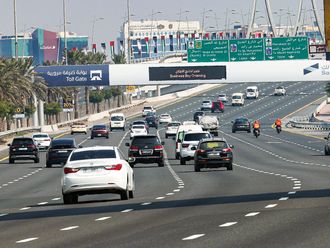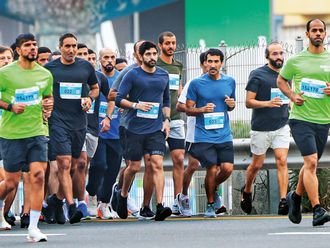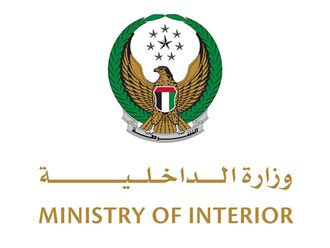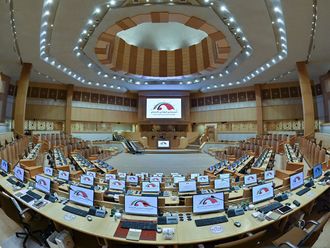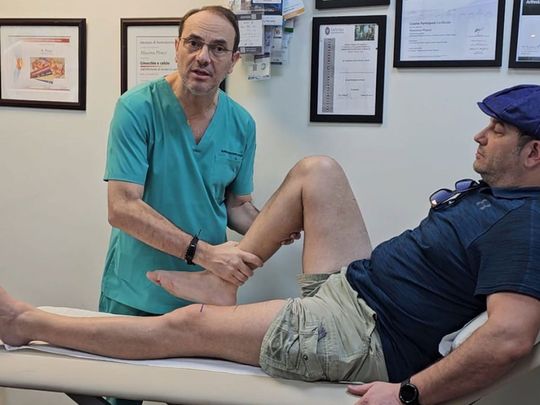
Dubai: An Italian executive chef at a five star hotel in Dubai, who injured his knee in an accident on the football field, has shared his harrowing experience of a surgery gone wrong, even as he has become one of the few recipients of an artificial ligament to address the problem in the UAE.
The 44-year-old father of one, Cosimo Danese, who is an active footballer in the local circuit with a chef’s job that requires him to be on his feet for long hours, said he suffered the knee injury in a goalkeeping accident, following which he had to undergo surgery.
“Initially, I went in for a natural ACL graft surgery (graft that was taken from my own tendon) but somehow, it didn’t help and my knee kept bothering me. So much so that I struggled to stand at a stretchor climb stairs. I couldn’t get back to football either. My daily routine started getting affected and I was very worried,” he said.
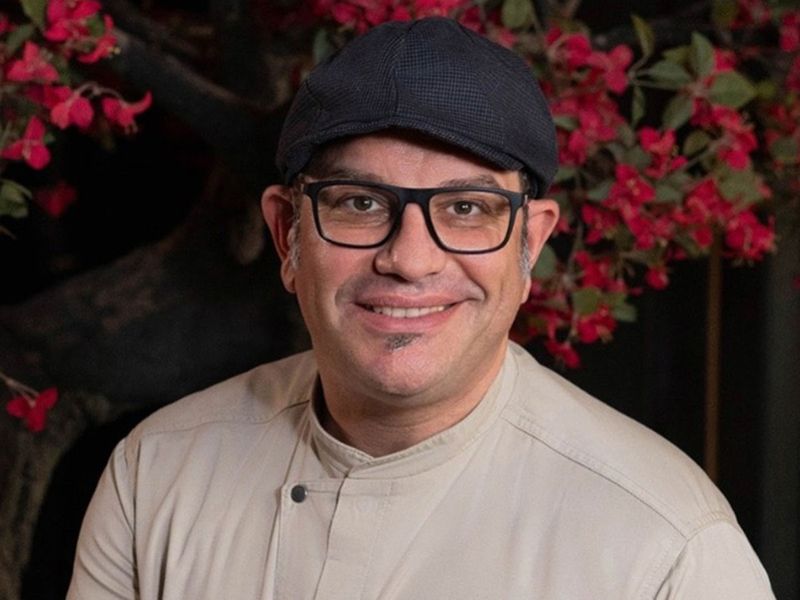
ACL or anterior cruciate ligament in the knee is a common injury among athletes, but can be very troublesome if it is not corrected.
Danese said he was fortunate he met fellow-Italian, Dr. Massimo Piracci, who worked as Consultant Orthopaedic Surgeon in the Department of Sports Medicine at Medcare Orthopaedic & Spine Hospital. Dr Piracci happened to specialise in LARS (Ligament Advanced Reinforcement System) treatment, where an artificial ligament is used as a synthetic graft for ACL reconstructions as well as knee extensor, ankle ligamentsand shoulder and hip tendon reconstructions.
“This treatment is very new to the Middle East, and it was the optimal solution for this patient, due to its comprehensive approach to knee treatment and the potential for a quick and enhanced functional recovery,” said Dr Piracci.
In the traditional method where a graft from the tendon is taken, it takes nearly six months for the tendon to transform into the ligament and rehabilitation can be an issue. But with the synthetic LARS, which is also a minimally invasive procedure, patients regain mobility extremely fast, sometimes as soon as the same day of surgery and up to six weeks later, he said.
The LARS ligament consists of 100 per cent industrial strength polyester fibres which are designed to encourage tissue ingrowth, he added.
He said studies still maintain that the use of autologous grafts remains the gold standard in ACL reconstruction, especially in young people but the LARS ligament is a suitable option in cases where patients are older, and require a fast functional recovery.
Although Danese was trying out a relatively new procedure, he said he willingly went for it, given his past experience.
“I am glad I did. There is no pain, no swelling and I am feeling better by the day,” he said, adding that he is looking forward to playing football with his friends - and son - again.


